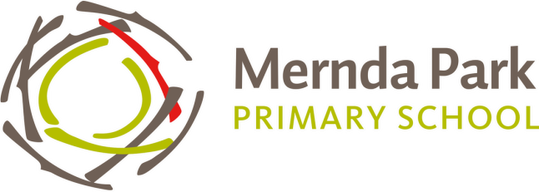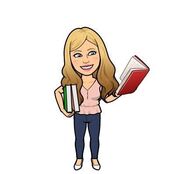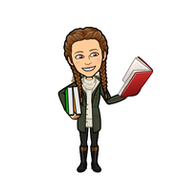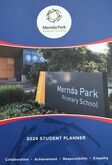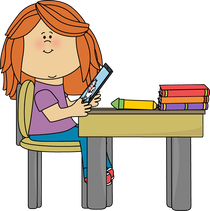Curriculum
The Victorian Curriculum F–10 sets out what every student at MPPS and all Victorian schools should learn during their first eleven years of schooling. The curriculum is the basis of all our MPPS planning documents and guides our teaching at MPPS, as well as forming a common set of knowledge and skills required by students for life-long learning, social development and active and informed citizenship. Further to this the Victorian Curriculum F–10 incorporates the Australian Curriculum and reflects Victorian priorities and standards.
Further information is available http://victoriancurriculum.vcaa.vic.edu.au/
Resilience, Rights and Respectful Relationships (RRRR) is a comprehensive approach to the primary prevention of violence against women and children. As a school we are dedicated to promoting and modeling respect, positive attitudes and behaviours with the aim of teaching our children how to build healthy relationships, resilience and confidence. The whole school approach to RRRR goes beyond curriculum, recognising that to drive real change, classroom learning needs to be reinforced by what is modelled within the school community.
Further information is available http://www.education.vic.gov.au/about/programs/Pages/respectfulrelationships.aspx
Further information is available http://victoriancurriculum.vcaa.vic.edu.au/
Resilience, Rights and Respectful Relationships (RRRR) is a comprehensive approach to the primary prevention of violence against women and children. As a school we are dedicated to promoting and modeling respect, positive attitudes and behaviours with the aim of teaching our children how to build healthy relationships, resilience and confidence. The whole school approach to RRRR goes beyond curriculum, recognising that to drive real change, classroom learning needs to be reinforced by what is modelled within the school community.
Further information is available http://www.education.vic.gov.au/about/programs/Pages/respectfulrelationships.aspx
Yan Yean Curriculum Snapshot
Term 3, 2024
English
ReadingThis semester Yan Yean students will be participating in reciprocal reading groups or literature circle discussion, focusing on the comprehension strategies of examining poetry, learning information from illustrations and graphics and summarising.
Our community will read... The Lion, the Witch and the Wardrobe by C.S Lewis Narnia… the land beyond the wardrobe door, a secret place frozen in eternal winter, a magical country waiting to be set free. Lucy is the first to find the secret of the wardrobe in the professor's mysterious old house. At first her brothers and sister don't believe her when she tells of her visit to the land of Narnia. But soon Edmund, then Peter and Susan step through the wardrobe themselves. In Narnia they find a country buried under the evil enchantment of the White Witch. When they meet the Lion Aslan, they realize they've been called to a great adventure and bravely join the battle to free Narnia from the Witch's sinister spell. |
WritingIn term 3, we will embed our whole school writing approach by looking at the following text types and writing strategies
Reading EggsReading Eggs is an online program that focuses on a core curriculum of phonics and phonemic awareness, sight words, vocabulary comprehension and reading for meaning. We allocate the students with set tasks that they work on at school but are also encouraged to work on at home.
|
Sound WavesThis year at MPPS we are continuing to use Sound Waves in our curriculum. This is a word study program designed to develop reading, spelling and writing skills through phonemic awareness. This is essentially a knowledge and understanding of sounds and sound patterns of our language. Our students will be working through their student activity books each week to study a different sound and the different letter patterns used to represent that sound. They also have an online login code that provides access to games and activities that helps students consolidate the spelling words that are being studied in the classroom. Students are encouraged and expected to access Sound Waves at home to reinforce their understanding of the sound we are studying that week. You can help your child by accessing Sound Waves at home and playing the games and completing the activities found there.
|
Mathematics
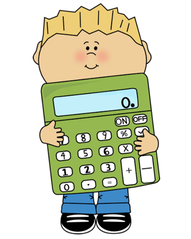
You can support your child’s maths learning by using Mathletics at home and creating real life experiences involving maths like cooking, shopping, reading a calendar and timetables.
Number
In the area of number we will be investigating strategies for multiplication and division. Students will use equivalent number sentences involving multiplication and division to find unknown quantities and solve word problems by using number sentences involving multiplication or division. We will have daily opportunities to improve our number fluency by developing times tables facts.
Chance and Data
Students will have the opportunity construct displays, including column graphs, dot plots and tables, appropriate for data type, with and without the use of digital technologies.
Space and Measurement
Student will explore objects using familiar metric units of area and volume. They will calculate the perimeter and area of rectangles and the volume and capacity of prisms.
Students will investigate the concept of location by exploring the use of scales, legends and grid reference systems on map.
Number
In the area of number we will be investigating strategies for multiplication and division. Students will use equivalent number sentences involving multiplication and division to find unknown quantities and solve word problems by using number sentences involving multiplication or division. We will have daily opportunities to improve our number fluency by developing times tables facts.
Chance and Data
Students will have the opportunity construct displays, including column graphs, dot plots and tables, appropriate for data type, with and without the use of digital technologies.
Space and Measurement
Student will explore objects using familiar metric units of area and volume. They will calculate the perimeter and area of rectangles and the volume and capacity of prisms.
Students will investigate the concept of location by exploring the use of scales, legends and grid reference systems on map.
STEAM
Integrated Studies
MAPPEN Levels 5 & 6 Discovery unit- The Journey to Discovery
Overview
Your students will learn about light refraction, electrical circuits, states of matter, and the scale of the solar system through hands-on experiments and experiences. They will build a thermoscope, a paper circuit and a balloon-powered rocket. Your students will work towards creating a presentation and a quiz to highlight the wondrous facts that they have learnt during the unit.
Rationale
Through learning about discoveries and the journeys that people go on to achieve them, we learn to value the process rather than the destination.
Investigation Into
- The scale of the solar system
- Light refraction
- Electrical circuits
- States of matter
- Coding
Essential Questions
- How can we create a model to show the scale of something?
- Why does light refract?
- What do we need to make an electrical circuit?
- What are the states of matter?
- How can we code a computer program?
Future Action
Your students will appreciate the scale and complexity of their world. They will use scientific knowledge and an understanding of the scientific method, as they discuss new discoveries. Through an awareness of historical patriarchy in science, your students will work towards equality in science and throughout of their lives. Your students will continue to develop science, engineering and programming skills as they move through their lives.
Resilience, Rights and Respectful Relationships (RRRR)
YYLC students will investigate Cyber Safety, including
- The impacts on our mental, physical and emotional health
- Friends vs Strangers online
- Online bullying and bystander responsibilities
- Analyse the impact of peer and adult actions in maintaining or changing contemporary gender norms
- Develop an awareness of the impact of gender norms on the attitudes and behaviours of those entering adolescence
- Identify the standards and associated actions that underpin respectful gender relations.
Buddies
Grade 6 students will work together with their Prep buddies on structured activities to develop positive relationships and social interaction. The Grade 6 students will have the opportunity to take on responsibility, demonstrate their leadership skills and learn how to be a positive role model for younger students.
Japanese
YYLC students will explore the systems of language in Japanese by communicating collaboratively. They will investigate Japanese culture by looking at celebrations, food, dress, and music.
Class Dojo

To help us create a positive culture in our Learning Community, we use Class Dojo to acknowledge positive behaviours that display our CARE values. Teachers can encourage students to display skills or values using Class-Dojo as an incentive — whether it's working hard, being kind, helping others. This is done by awarding points that are displayed electronically in the Learning Community or Specialist class. Using Class Dojo can help student’s emotional literacy grow as they have the opportunity to receive immediate, regular and positive feedback in a fun visual way.
Specialist Classes
Monday |
Tuesday |
Wednesday |
Thursday |
Friday |
Japanese All groups |
Interschool Sports |
|||
Performing Arts YYLC 1 and 2 |
Performing Arts YYLC 3 and 4 |
Performing Arts YYLC 5 |
|
Buddies (even weeks) |
Visual Arts YYLC 3 and 4 |
Visual Arts YYLC 5 |
Visual Arts 1 and 2 |
||
PE YYLC 5 |
PE YYLC 1 and 2 |
PE YYLC 3 and 4 |
